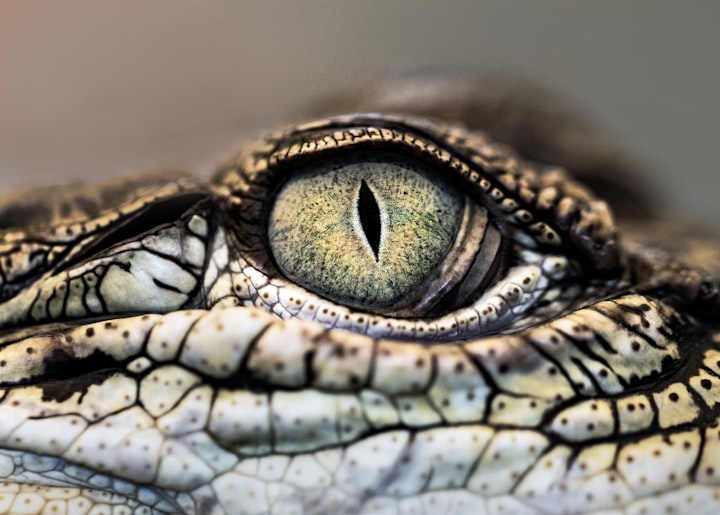
Domestication is a process that has brought us dogs, cats, some pigeons, barnyard animals, and a variety of plants. There are even arguments that humans themselves show signs of domestication. Thus far, mammals and birds make up the majority of domesticated animals, yet there doesn’t seem to be any commonly known reason to say that crocodilians couldn’t be domesticated. After all, there is anecdotal evidence of friendship between humans and crocodiles already, as well as caimans controversially kept as pets. In order to determine if this is indeed possible, we need to examine what domestication is and what common threads between domesticated animals exist.

Although there isn’t strong agreement in the scientific community on how to define domestication, a simple explanation by National Geographic is that domestication is the process through which animals and plants are adapted for human use, especially by breeding or selecting for traits which are advantageous to humans. This means selecting animals to breed that have a desired trait such as being friendlier, better able to understand human body language, or well suited for a specific task thanks to their size or shape. One wouldn’t send a tiny rat terrier to do a massive boarhound’s job, after all. Other definitions include the need for a mutual relationship - or one which benefits both parties - usually through humans providing protection, easy food, and sometimes companionship. All together, these would mean domestication is controlling breeding to make a desired trait more common in the group and specialized care to get better use of an animal or plant, sometimes allowing the animal or plant to have a longer or easier life with more offspring than they would have had on their own.
Assuming we wanted to breed for a single useful trait some crocodiles have in order to make it more common and pronounced, the answer to whether we could domesticate crocodiles would seem to be yes. However, that doesn’t take into account whether crocodiles actually have desirable traits or traits which would lend themselves to domestication for a purpose. For this example, we will assume the goal of domestication of the crocodile is for companionship. Some traits which may allow domestication to begin include social hierarchies, parental care, guided breeding and some ability to interact peacefully with humans.
Existing social hierarchies are important in a potential target for domestication because in order for a human to take a role of dominance or leadership, the animal must first recognize the concept of dominance and social behavior is key to any interaction. This does not disqualify the crocodile, however! Crocodiles are the most vocal and social of all reptiles, forming fluid size-based hierarchies that communicate through vocal and physical signals. Some species even will tolerate sharing prey. In fact, crocodiles have been known to exhibit social play behavior with one another and sometimes with nearby mammals such as river otters or people. However, they still do not tend to form long-term social groups and research on social behavior of crocodiles is not as thorough as it is for mammals, due in part to approachability. Of course, dominance being mainly size-based poses a problem, too. There are few humans that would be able to keep a size advantage over a crocodile as it grows! Still, the behavior is there, even if challenges have already appeared. The crocodile is on shaky ground, but not out of the game just yet.
Next, we examine parental care. Not all species have parental care - meaning not all species care for their offspring for any period of time. This impacts domestication in two ways. The first is that this parental care in addition to social interactions allows learned behaviors to be passed down. Secondly, domesticated animals like dogs seem to retain juvenile traits related to parental care such as features human and animal parents often think of as “cute” as well as some behavioral trends. Some of these juvenile traits that would interest us in domestication are playfulness, dependency, and care-seeking. Obviously, a tendency to be more social and playful over seeking dominance would be helpful in domestication. Furthermore, care-seeking would allow bonds to form. However, dependency is at best debatable, considering the existence of feral animals that survive quite well in the wild despite being part of a domesticated species. Regardless of that hiccup, these juvenile traits are likely to be found more strongly in species that have parental care. When it comes to reptilian parental care, crocodiles are top of the line, in my opinion. They famously protect their nests and young, carrying their children safely in their mouths to the water and caring for them for around 6 months with some arguing for extended parental care. The existence of parental care and likely of these shared traits is a point in favor of the possibility of domesticating crocodiles for companionship.

In order to actually make these and other desired traits more common or lasting, however, guided breeding must be viable. A study from the 1980’s found captive crocodiles to have fewer nesting females with less eggs per clutch and less of those eggs able to hatch. Additionally, crocodiles are well known for being protective over dens, eggs, and hatchlings. However, there may be a way around these difficulties. Artificial insemination has been successfully used by scientists in Malaysia with saltwater crocodiles, though only to produce two new hatchlings. This could allow unprecedented control over which individuals produce offspring. Though with the current quantities at play, breeding this way would take much longer than allowing nature to take its course. Speed is key in guided breeding, since domestication takes thousands of years even with animals like dogs that can have large litters relatively quickly. The difficulties in breeding crocodiles in captivity thus present a larger roadblock than one might first assume, even with new technologies at hand.

Two out of four points of interest now lean in favor of crocodile domestication - though the difficulties in breeding carry some added wait. Still there is one more point to consider: the ability to interact somewhat peacefully with humans. While there is anecdotal evidence of human-crocodile friendships, this is not necessarily the norm. Of course, this doesn’t mean crocodiles attack humans at every given opportunity, but there are factors which may play into difficulties getting along. Territorial behavior is not unheard of in crocodiles, nor is aggression during breeding seasons or in defense of a den. Some may argue that these behaviors are possible even in dogs and cats and should not be a mark against the crocodile in the examination of whether they could be domesticated for companionship. However, it is important to note that most dogs and housecats will not grow to 8 to 12 feet on average, as the American crocodile will - or even to 20 feet, should they live long enough. That's not a size that lends itself well to making mistakes. Furthermore, while it is true that dogs kill considerably more people per year than crocodiles do (usually by infection after an initial bite), it is also true that dogs are far more widespread than crocodiles. The elevated numbers are likely skewed by the sheer amount of contact between humans and dogs. This also occurs even when dogs have shown a seemingly unmatched understanding of human body language and gestures compared to other animals as seen in multiple studies - something crocodiles would be hard pressed to match, coming from a reptilian perspective. Furthermore, even those who already own crocodilians such as caimans advise that crocodiles, caimans, and their relatives do not make good pets and often react to human presence with hostility. Increasing the amount of contact points between humans and crocodiles on this shaky ground may not be the wisest course of action.
Yet, based on these few observations alone, it seems that domestication of crocodiles for companionship is indeed possible. With interspecies play, natural social hierarchies, tender parental care, and the ability for humans to closely guide breeding, pet crocodiles would not be off the table - in hundreds of thousands of years. One might argue any animal could be domesticated to some level with enough time and money and that crocodiles already display desirable traits that might allow them to retain some of their identity through the process. Smaller, friendlier crocodiles would be a dragon-lover or dinosaur enthusiast’s dream come true. Ethically, however, this is a scalier problem and when it comes right down to it, the feasibility is weak thanks to the difficulties with breeding and peaceful interaction. It would take massive funding, more lifetimes than a cat, and not a little luck to pull it off. With a heavy heart, I’m giving this question the answer of “possible, but certainly not probable.”

Unless, of course, a billionaire discovers a path to immortality and decides on a pet project. However, immortality and other silly questions are for next time on Meaningless Speculation. Hope to "see" you there!
About the Creator
Corwynna
I'm a 28 year old writer and biologist with a million hobbies and enough passion for all of them!
Explore my music, stories, and homebrew on my site:
https://sites.google.com/view/corwynnascorner/home






Comments
There are no comments for this story
Be the first to respond and start the conversation.